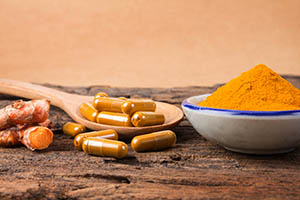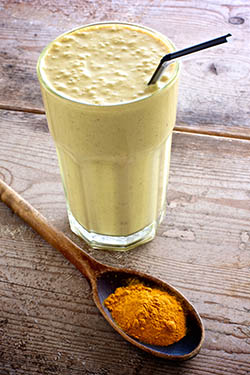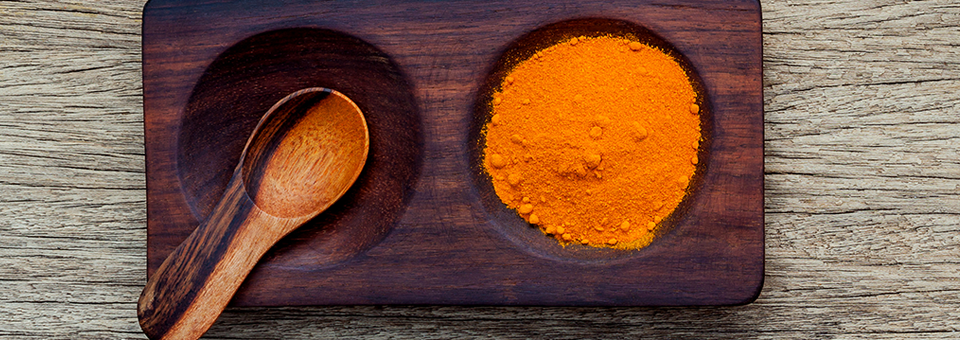“Dr. Sears,” C.R. asked me, “I know curcumin is good for treating a lot of things, but can it improve someone’s mood?”
This morning, one of the women on my staff, C.R., came into my office to talk to me about her 15-year-old son. He’d been irritable and moody and sleeping a lot lately. Most mornings, he’d miss the bus to school and then stress about being late.
But today, he was up on time with his backpack packed and a smile on his face. C.R. even heard him whistling in the shower! And he was at the bus stop 10 minutes early.
C. R. started taking curcumin supplements a few weeks ago. She had no idea that her son had started taking them, too. And she wondered if there was a connection…
As a matter of fact, I told her… curcumin is a proven mood-booster.
You’ve probably heard about curcumin by now. It’s an active compound of the turmeric plant. There are thousands of published studies about how powerful curcumin is for treating hundreds of conditions.
And a number of those studies show that curcumin is an effective treatment for a variety of mood disorders. Everything from depression to anxiety to mood swings.
In one study, patients with major depressive disorder were divided into three groups. One group took 20 mg of Prozac every morning. Another group took 500 mg of absorption-enhanced curcumin twice a day. And the third group took both. The curcumin group responded just as well as the Prozac group. But with no side effects.1
In another study, mice were restrained for
six hours to induce stress. They were then given 20 mg of curcumin. It produced a significant antianxiety effect.2And in a UCLA study, adults aged 60-85 were given 400 mg of curcumin for 30 days.3 Results showed improved cognitive function and a general sense of well-being, state of calmness and contentedness.
So why don’t most people know about curcumin’s mood-enhancing abilities?
Let’s put it this way…
There are literally hundreds of mental health drugs on the market — antidepressants, antipsychotics, antianxiety meds, mood stabilizers…
The most profitable one is Abilify, which is prescribed as an “add-on” treatment for depression. It costs a whopping $30 a pill. It makes $7 BILLION in profits every year.4
And as I mentioned, that’s just ONE of many, many of the mental health drugs on the market.
By comparison, you can get the healing power of curcumin (in a supplement) for about $1 a day.
You can buy a pound of fresh turmeric root at a specialty market for about $10.
No matter how much evidence keeps rolling in about curcumin’s healing powers, it will never be a money-maker for Big Pharma. So it’s easier to just ignore it.
Improve Your Mood With Turmeric
Curcumin is one of nature’s greatest miracles. And the easiest way to make sure you’re getting its benefits is with a supplement. But make sure you choose one with at least 90% curcuminoids. Also, look for one that contains piperine, a black pepper extract that boosts absorption. Take between 500-1,000 each day.
I also like to cook with fresh turmeric root. I use it in everything from scrambles eggs to soups and stews. I’m always trying out new recipes.
I really love drinking smoothies in the morning, and have been experimenting with ways to incorporate turmeric into them. I tried this recipe last week… and I think it’s a winner!
I hope you think so, too…
|
My Tropical Turmeric Smoothie |
|
| • 1 blood or navel orange (flesh only) | • 1 tablespoon shelled raw hemp seeds |
| • 1 large carrot, coarsely chopped | • ¾ teaspoon grated ginger |
| • ½ cup mango chunks
(I freeze mine first) |
• 1½ teaspoons finely grated
peeled turmeric |
| • 4 cup sliced banana | • Pinch of cayenne pepper |
| • 1 cup coconut water | • Pinch of sea salt |
Combine all ingredients in a blender and blend until smooth. If using fresh mango that hasn’t been frozen, you may need to add ice. If it’s too thick, increase coconut water until it reaches the right consistency. Enjoy!
To Your Good Health,
![]()
Al Sears, MD, CNS
1. Sanmukhani J, Satodia V, Trivedi J, et al. Efficacy and safety of curcumin in major depressive disorder: A randomized controlled trial. Phytother Res. 2013;doi:10.1002/ptr.5025.
2 Gilhotra N, Dhingra D. “GABAergic and nitriergic modulation by curcumin for its antianxiety-like activity in mice.” Brain Res.2010 Sep 17;1352:167-75. Epub 2010 Jul 12. PMID: 20633542.
3 Cox KH1, Pipingas A1, Scholey AB2. Investigation of the effects of solid lipid curcumin on cognition and mood in a healthy older population. J Psychopharmacol. 2015 May;29(5):642-51. doi: 10.1177/0269881114552744. Epub 2014 Oct 2.
4 Michaelson, J. “Mother’s Little Anti-Psychotic Is Worth $6.9 Billion a Year,” The Daily Beast. Nov. 9, 2014

